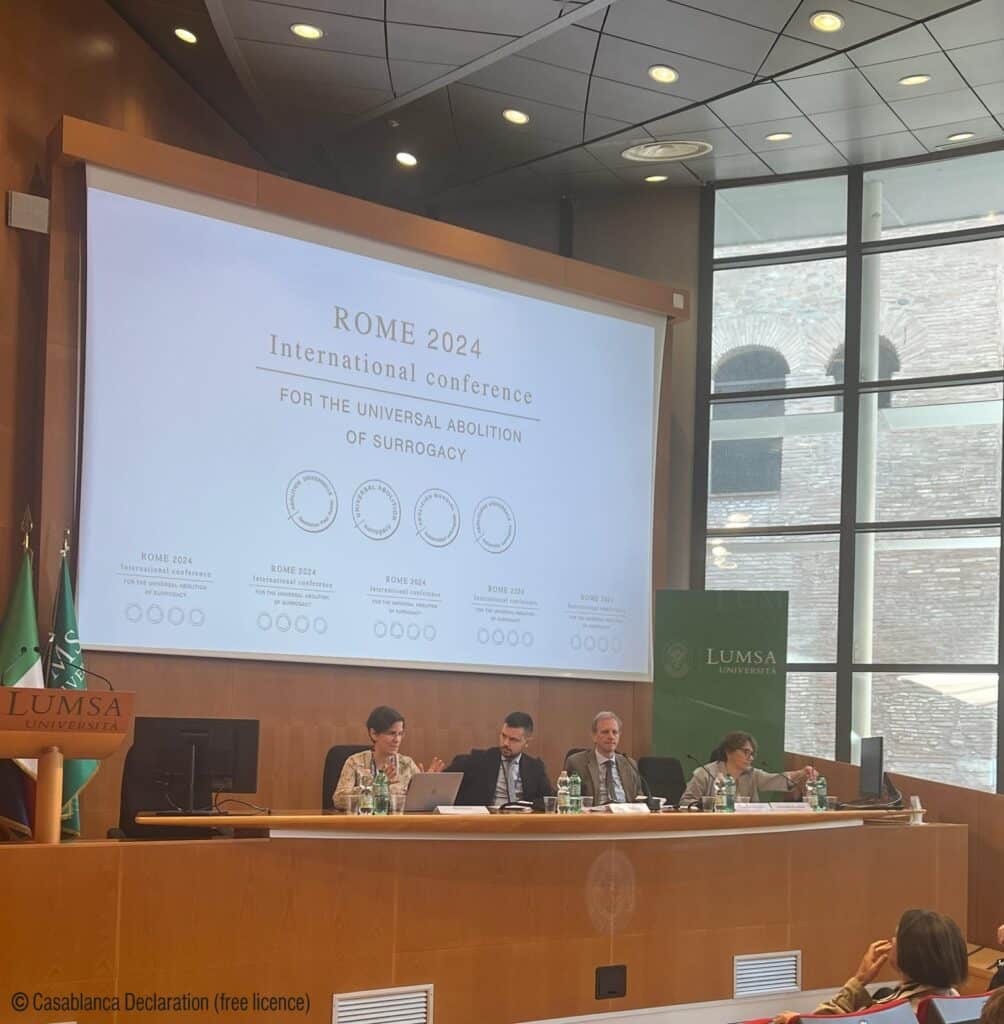Press release 31 January 2025
The first contribution warns once again of the emergence and development of a new form of violence based on the reproductive exploitation of women and girls. This contribution for the report of the Special Rapporteur to the Human Rights Council is part of the theme ‘Forms of gender-based violence against women and girls: new frontiers and emerging issues’.
– This paper looks at how surrogacy represents a new form of gender-based violence (I).
– It makes the alarming observation that surrogate pregnancies are accompanied by an ever-increasing incidence of violence against women (II).
– It points out the inadequacy of the response based on the distinction between ‘commercial’ surrogacy and ‘altruistic’ surrogacy (III),
– the inadequacy of the response based on the treatment of the legal situation and a posteriori care of children born of surrogacy (IV),
– the inadequacy of the response based on national initiatives (V).
– It asks the Special Rapporteur to promote the universal abolition of surrogacy as the only way to effectively protect women and children.
See the text of the contribution in English here.
The second contribution deals with the question of the women’s alleged consent to surrogacy: This Contribution for the addendum to the report of the Special Rapporteur to the 59th session of the Human Rights Council is part of the theme ‘The concept of consent in relation to violence against women and girls’ and is entitled: ‘Surrogacy: a misleading use of the concept of consent to hide violence against women’.
– The contribution begins by giving examples of court decisions and approaches that represent good practice or problematic practice (I).
– It points in particular to the problematic case in France, which validates surrogacy carried out abroad on the sole criterion of the foreign surrogate mothers’ “consent” to surrogacy.
– On the contrary, it welcomes the European Union’s reminder in Directive 2011/36/EU that consent alone does not rule out human trafficking, particularly in the case of surrogacy.
– These developments are supported by the testimonies of American surrogate mothers, which highlight the exploitation of their vulnerable situation to obtain their consent: in particular, the testimonies of 2 former surrogate mothers, Gloria, twice a surrogate mother, and Kelly Martinez, three times a surrogate mother, are recounted.
– The contribution then explores alternatives that would enable the burden of proof to be placed on the perpetrators of violence and not on the victims, in unequal power relationships (II), thus responding to question 12 in the Special Rapporteur’s call for contributions, which seeks to consider alternatives to the notion of consent.
The contribution makes the following proposals to the Rapporteur:
– Because consent to any form of surrogacy is impossible, the practice must be prohibited ;
– Only an international convention banning surrogacy will be able to protect women from the commercial exploitation of their bodies for procreative purposes.
See the text of the contribution here.
………………………….
The Casablanca Declaration thanks Reem ALSALEM, UN Special Rapporteur on violence against women, for attending and listening to the International Conference in Rome on 6 April 2024

